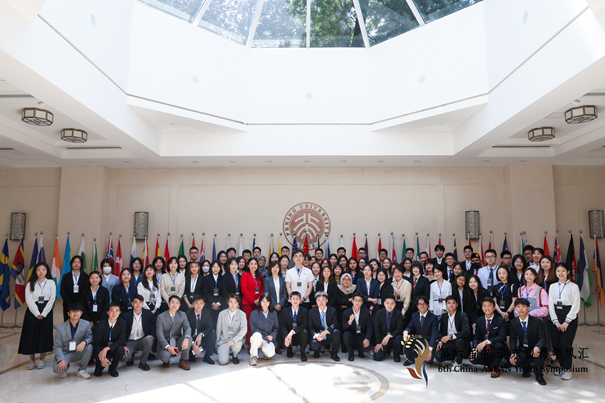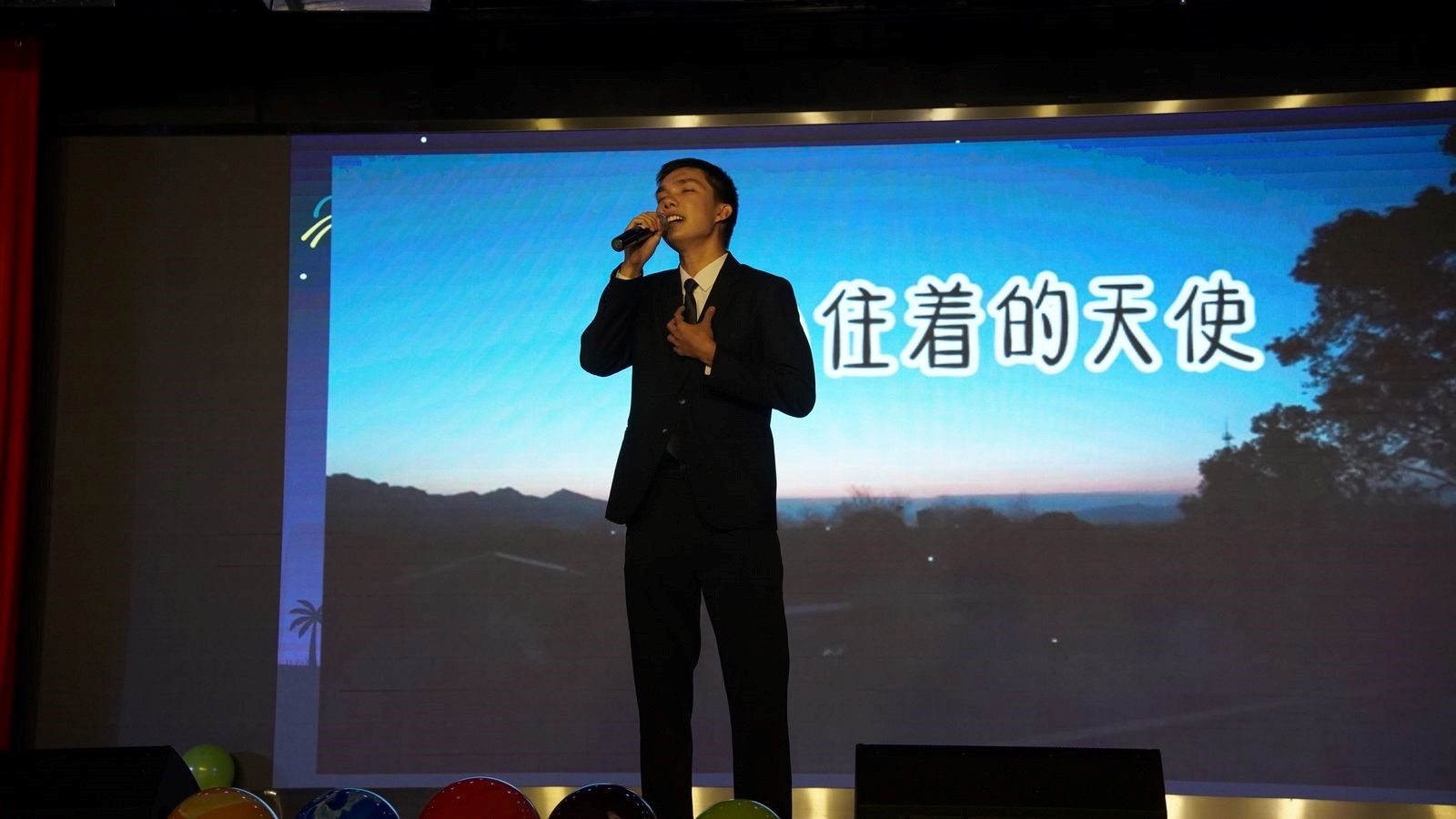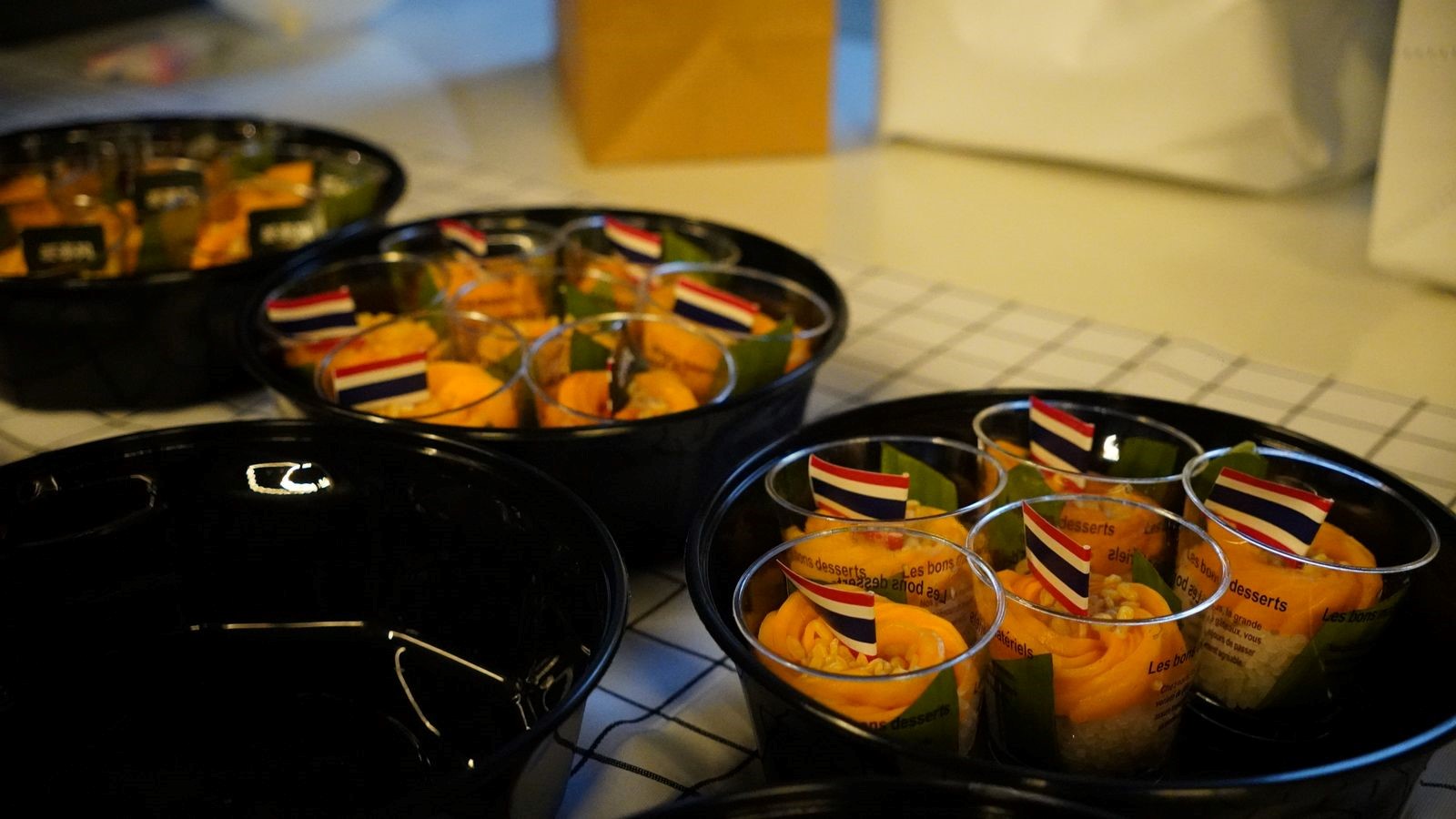Peking University May 28, 2023: The 6th China-ASEAN Youth Symposium (CAYS) was held at Peking University from 18 to 21 May 2023.
The 6th China-ASEAN Youth Symposium is jointly organized by PKU Southeast Asia Association and Boya Group Pte Ltd, with advisory support from the PKU Institute of Area Studies. The theme of this year’s CAYS was "Resilience amid Disruption: Envisaging a Blueprint for China-ASEAN Cooperation”. A total of 148 students from China, ASEAN and other countries gathered together to discuss a wide array of topics, spanning from political, economic, and social, to cultural cooperation.
Secretary-General of the China-ASEAN Center Shi Zhongjun, Ambassador Extraordinary and Plenipotentiary of the People’s Republic of China to ASEAN Hou Yanqi, Chairman of the Board of Boya Group Private Limited Liu Ruiqi, Executive Dean of Boya Research Institute Li Zhengyang, Deputy Director of the China International Communications Group (CICG) Center for International Cultural Communication Li Hongru and Deputy Dean of PKU Institute of Area Studies Zhai Kun graced the opening ceremony.
In his opening speech, PKU Vice President Sun Qingwei pointed out that he hopes youths will study diligently, apply what they learn, and be open-minded. Sun encouraged young people from China and ASEAN to learn from senior scholars and strive to enhance Southeast Asian studies. Youths from various countries should always seek consensus in differences through harmonious communication. He put his faith in youths to become the future advocates of friendly China-ASEAN bilateral relations.
Shi Zhongjun acknowledged the significance of CAYS as a good platform for young people from China and ASEAN countries to engage in constructive dialogues regarding regional affairs. Shi emphasized the importance of practical cooperation and cultural exchanges between ASEAN and China, and pointed out that the younger generation will be the main driving force for future ASEAN-China cooperation. He hopes that the participants will make full use of this valuable opportunity to communicate, collaborate and take action.
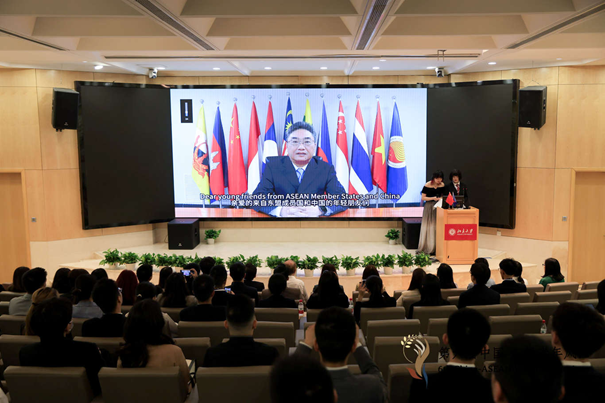
Recorded speech of Shi Zhongjun
Hou Yanqi expressed in her opening video speech that China and ASEAN, through unity and cooperation, have made significant contributions to the region's peace, stability, and prosperity amid uncertainties in the international and regional situation and risks such as the pandemic. Hou Yanqi stated that trust and a good framework for cooperation are decisive factors affecting the resilience of China-ASEAN relations. She emphasized the important role of youths in China-ASEAN relations and encouraged youths to step up in promoting people-to-people exchanges to inject vigor and vitality into China-ASEAN relations.
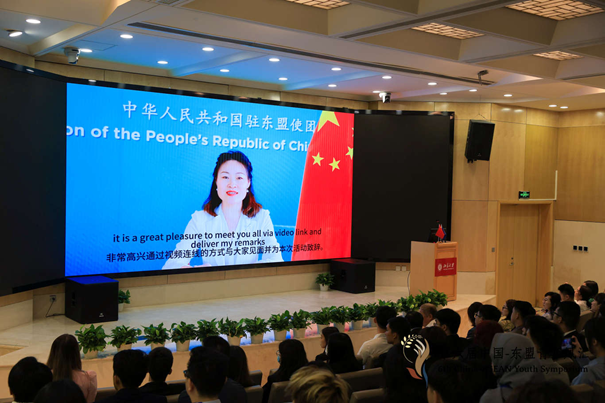
Recorded speech of Hou Yanqi
Liu Ruiqi, who attended the opening ceremony, shared his wonderful affinity with Southeast Asia. He emphasized the importance of cultural research and encouraged young people to make friends, embrace diverse cultures, and contribute to promoting cultural exchange. Finally, he wished CAYS to be a successful event.
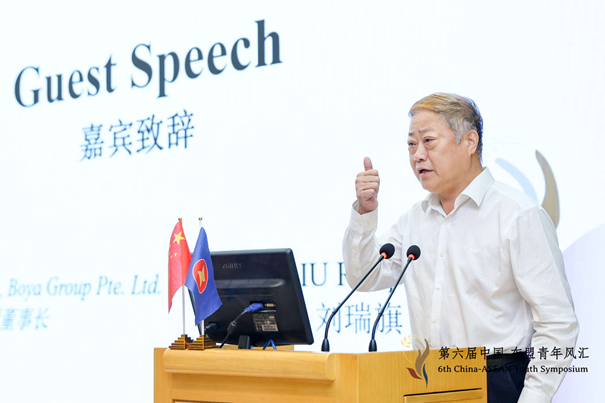
Liu Ruiqi delivered a keynote speech at the opening ceremony of CAYS
The Opening Ceremony ended with the launching ceremony, a trademark of the China-ASEAN Youth Symposium. Student representatives from China and eleven Southeast Asian countries showcased traditional Chinese paintings of their respective national flowers. These paintings incorporate the representation of each country's cultural image with the cultural heritage of traditional Chinese painting styles. Together, they symbolize the symbiosis of these countries in our Symposium.
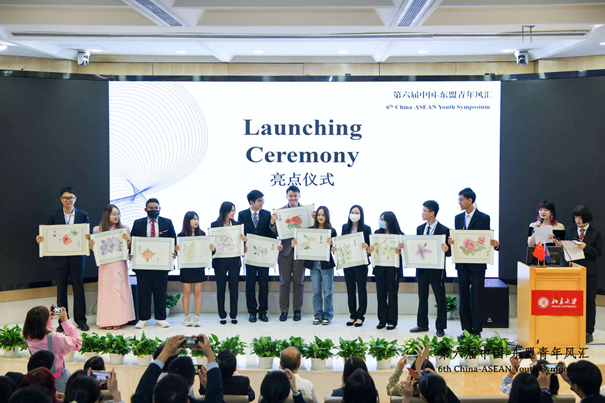
The Launching Ceremony
Insightful sharing by various academics and industry experts
In order to deepen the understanding of student delegates on China-ASEAN affairs, this year's Symposium organized a roundtable forum, external visits, and academic guest lectures. Delegates have the opportunity to learn about the existing challenges and opportunities in the China-ASEAN region from various academics and industry experts.
The topic of this year’s roundtable forum was “China-ASEAN Higher Education Cooperation: Past Efforts and Future Prospects”. The panel featured guest speakers Ning Jingjing, a researcher at the China International Communications Group Center for International Cultural Communication, and Yang Tirong, a Postdoctoral Fellow at PKU IAS. They were joined by three student panelists. The roundtable forum diverged from traditional discussion formats – it began with student panelists posing questions to the guest speakers, before inviting the guest speakers to give their responses, and then opened the questions to the floor. The panel discussion underscored the need for standardized frameworks, expanded resource-sharing mechanisms, and more inclusive educational policies to enhance higher education cooperation. The importance of considering the perspectives of youth and addressing disparities in resources and opportunities was emphasized by all panelists. The Forum provided valuable insights into the challenges and opportunities in regional higher education cooperation. These insights could benefit policymakers, educators, and students alike. The sustained engagement of all stakeholders will be crucial in shaping a more inclusive and effective approach to education cooperation in the future.
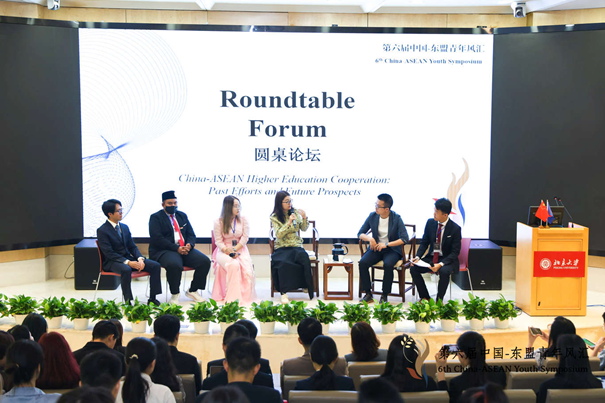
As the first CAYS held offline since the COVID-19 Pandemic, student delegates have the opportunity to visit four different locations – the Embassy of the Republic of the Philippines in the People's Republic of China, Asian Infrastructure Investment Bank (AIIB), China International Communications Group (CICG), and the ASEAN-China Centre (ACC). This provided delegates with the opportunity to understand the efforts by various efforts to cement China-ASEAN Cooperation.
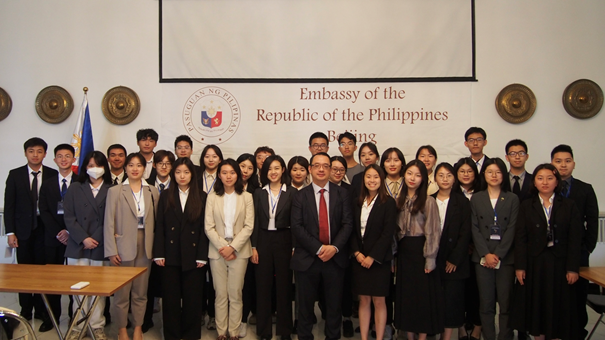
Visit to the Embassy of the Republic of the Philippines in the People's Republic of China
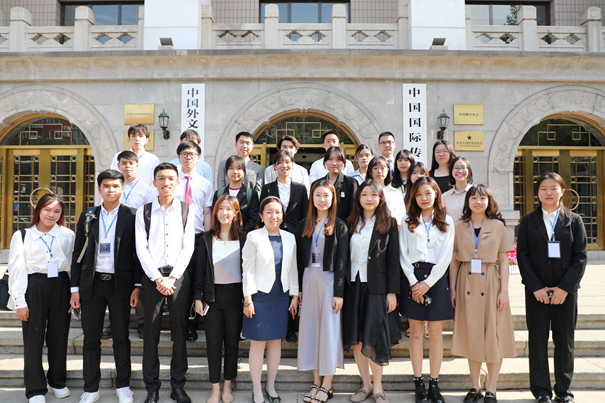
Visit to the China International Communication Group (CICG)
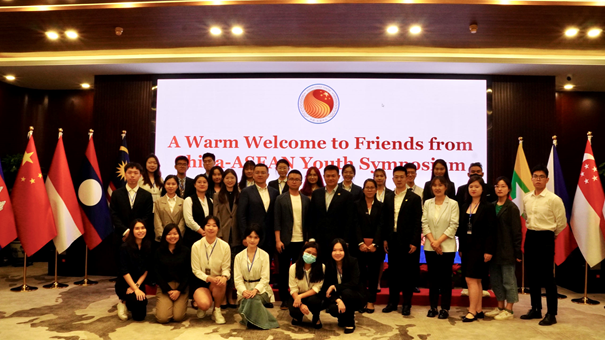
Visit to the ASEAN-China Center
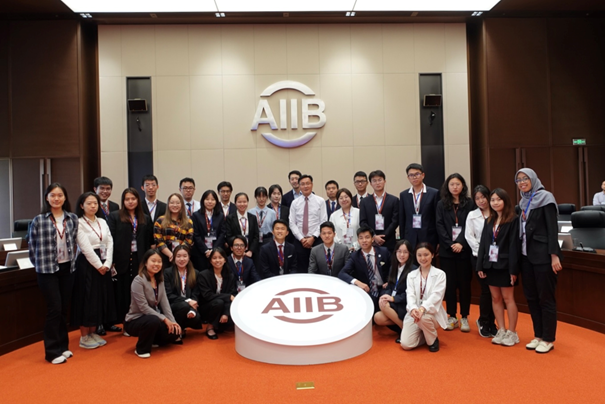
Visit to Asian Infrastructure Investment Bank (AIIB)
Extensive Academic Discussions in Model ASEAN Meetings
CAYS adopts the simulation of the ASEAN Meetings, or Model ASEAN Meetings (MAM) for its academic discussions. Unlike Model United Nations (MUN) conferences, MAM simulates the discussion mechanisms of ASEAN meetings, adhering to the fundamental principle of consensus. Through MAMs, delegates had the opportunity to understand the purpose of ASEAN and its decision-making process. This year, aligned with the significant progress of Timor-Leste being accepted as the 11th member of ASEAN in principle, CAYS also incorporated the Timor-Leste delegation into the committees.
Delegates were assigned to six committees, with each committee covering a different topic that correspond to one of the three pillars of the ASEAN Community, namely Political-Security, Economic and Social-Cultural Community. During the committee sessions, delegates expressed their views on critical issues pertaining to their committee topics. Their discussion outcomes culminated in the final joint declaration, which covered various aspects of China-ASEAN cooperation, including maintaining regional peace and security, economic recovery, digital security management, digital financial regulation, combating transnational crime, empowering women and children, and promoting education. These formal documents reflect the youth’s understanding of the China-ASEAN regional issues, multilateral relations, and the principle of consensus. Throughout the discussion process, the delegates fully embodied the ASEAN spirit and displayed leadership and strong cross-cultural communication skills.
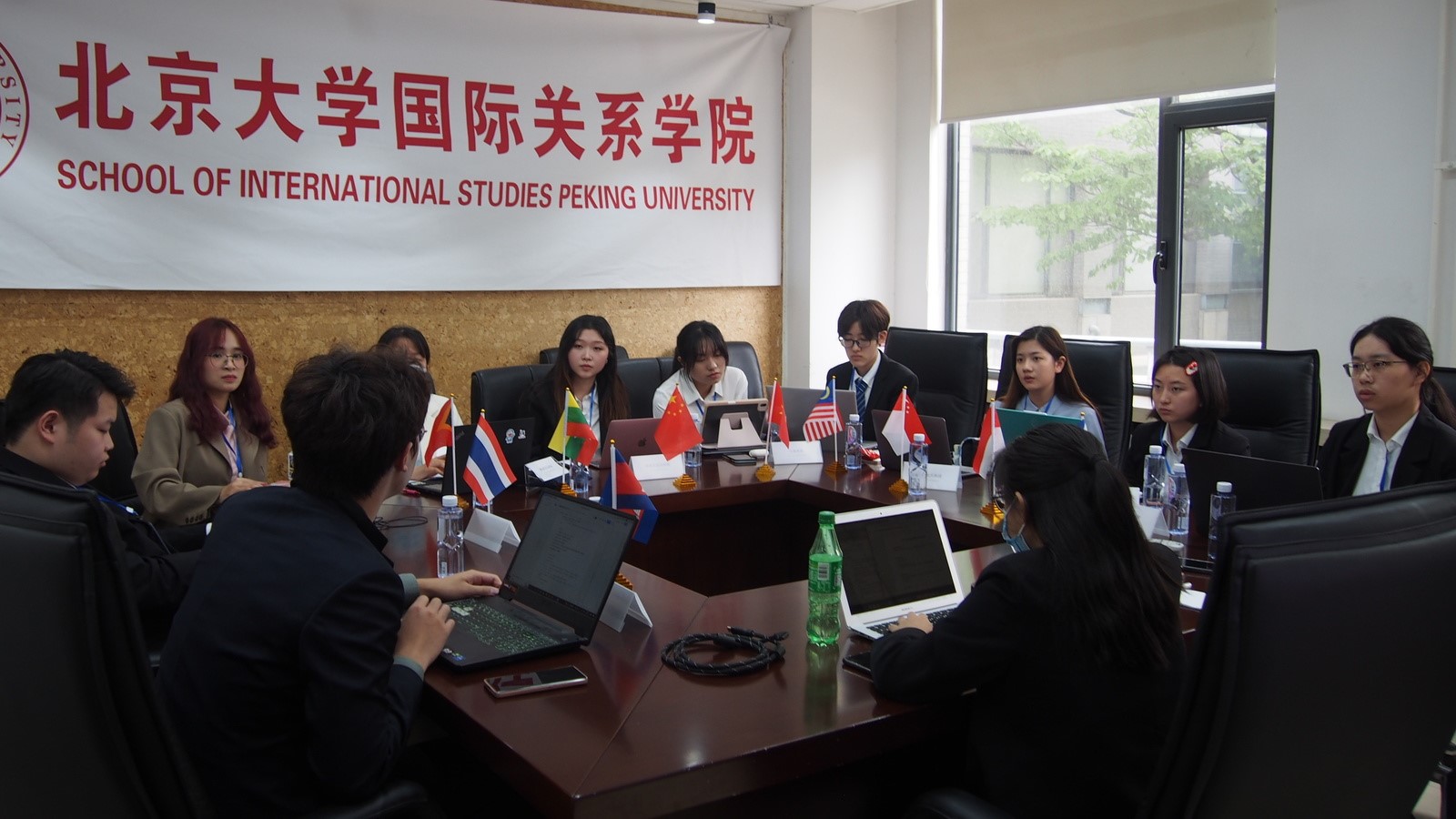
Delegates in discussion in their various committees
A Night of Splendor and Cultural Immersion
May 21
st marked the arrival of Xiaoman, the second solar term in the summer and one of the twenty-four Chinese solar terms. In alignment with this seasonal transition, this year's Cultural Night revolves around the theme "Boya Night - Xiaoman Rongrong (小满融融)," symbolizing flourishing growth, fulfillment, and resumption.
During the Cultural Night, delegates wore traditional costumes from various countries, enjoyed cultural performances, tasted various traditional cuisines, and participated in exciting games and interactions. On the day of the banquet, the performances were rich in content, including traditional Thai dance, Lao song and dance, Japanese stand-up comedy performances (manzai), and adapted Southeast-Asian folk songs.
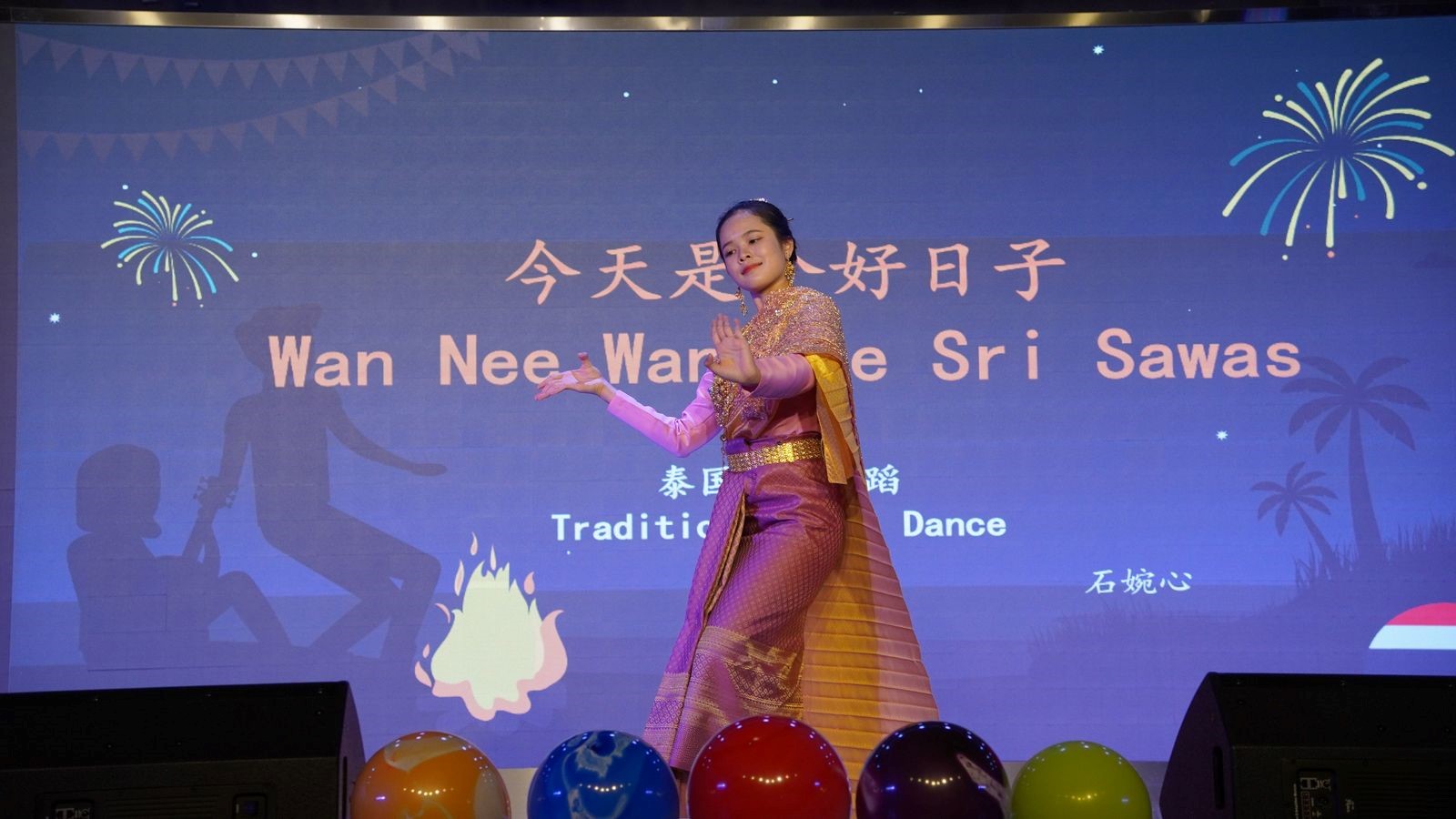
Cultural Performances

Southeast Asia Traditional Cuisines
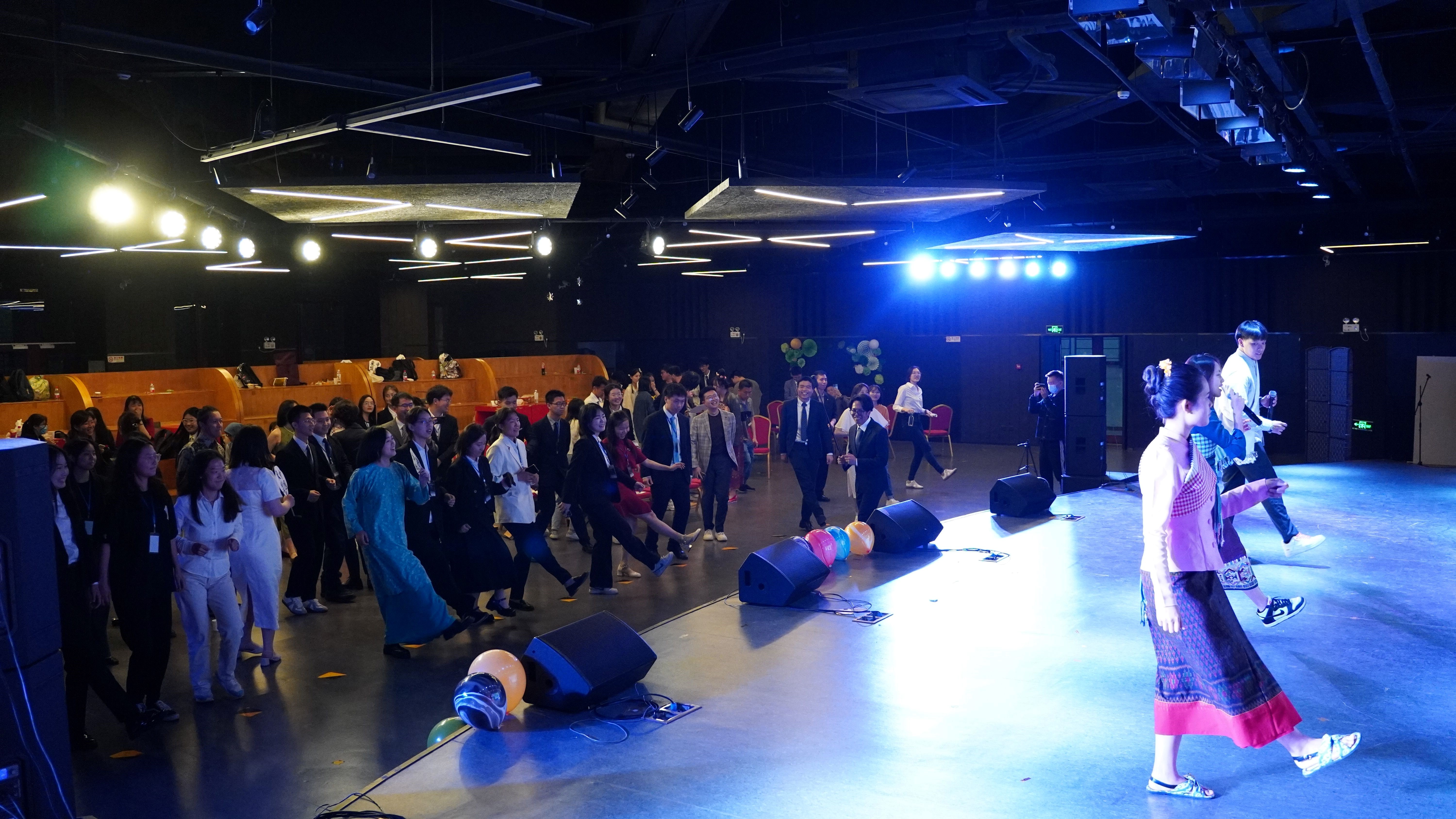
Traditional Lao Mass Dance
About the China-ASEAN Youth Symposium (CAYS)
Since its inauguration in 2016, the China-ASEAN Youth Symposium has gathered close to 200 students from China and ASEAN countries every year to discuss the opportunities and challenges faced by China and ASEAN. During the conference, delegates bring forth their unique ideas and perspectives in order to promote interaction, understanding, and trust between youths from China and ASEAN.
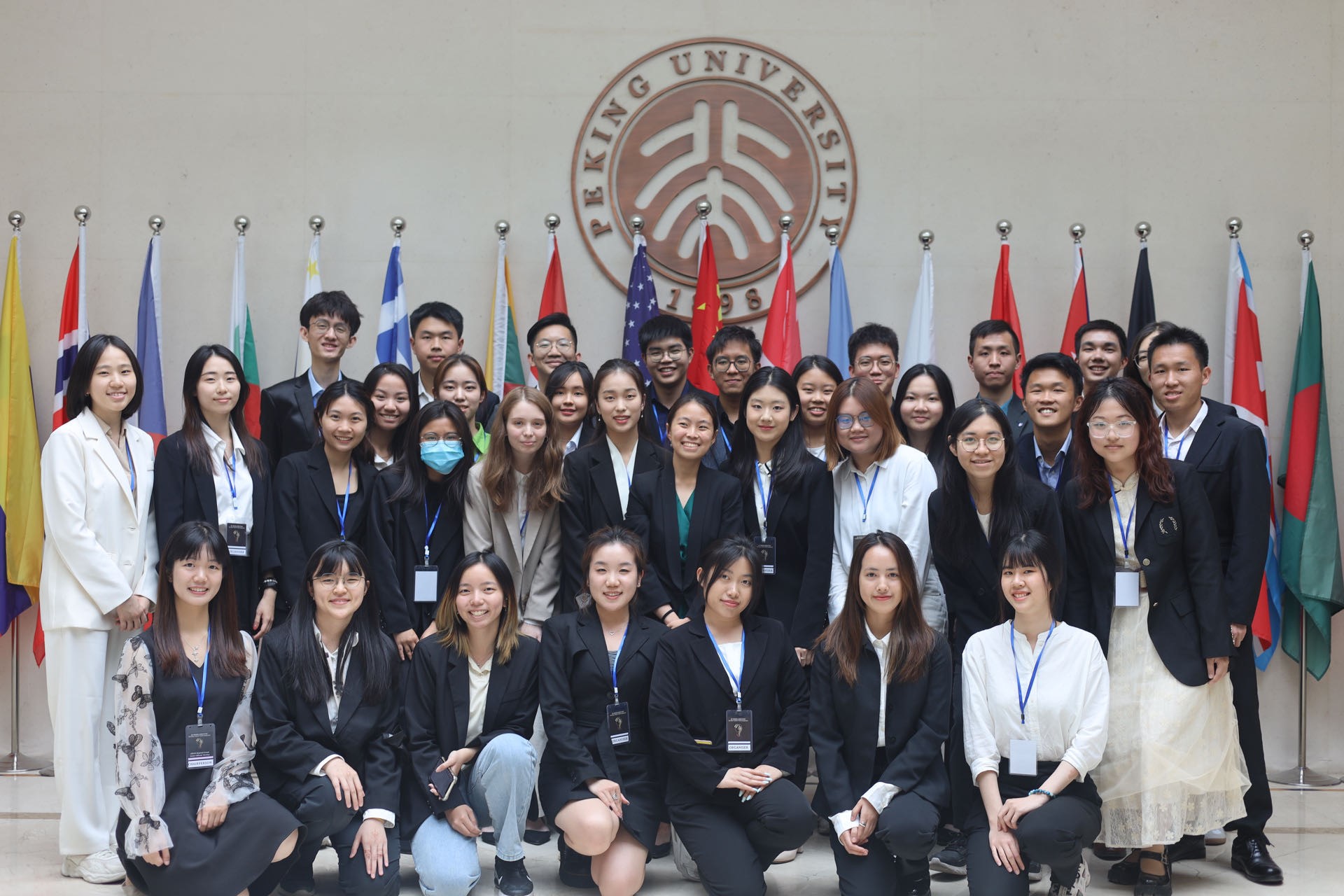
The 6th CAYS Organizing Committee
Written by: Shi Xinyao
Edited by: Dennis Meng
